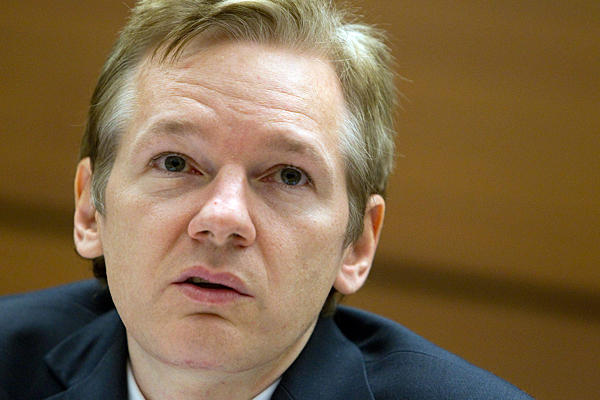BeyondHeadlines News Desk
New Delhi: Wikileaks Chief Julian Assange has said that Prime Minister Manmohan Singh is misguiding people by saying that the Wikileaks revelation on 2008 trust vote is not authentic. However, he also stressed the charges are worth investigating.
Assange said that the prime minister’s comments that the cables, which revealed that the MPs were bribed for voting in favour of nuclear deal in 2008 trust vote, were not authentic seems to be an attempt to deceive people.
The Wikileaks disclosed that Manmohan Singh-led United Progressive Alliance (UPA) government had paid huge sum to the MPs prior to the trust vote in 2008, asking them to vote in favor of the nuclear deal.
However, the prime minister in a statement had denied the allegations saying that he is not aware of MPs being bribed.
The prime minister said in Parliament that the government could not “confirm the veracity, contents or even the existence of such communications,” and added that many people mentioned in the cables have “stoutly denied the veracity of the contents.”
Assange asserted that there “is no doubt, whatsoever, that the cables are authentic,” and that because of this the US Government has been very upset over the leak of the diplomatic cables.
He said that there was “no doubt that these are bonafide reports sent by the US ambassador in India back to Washington and these should be seen in that context.”
“That does not mean every fact in them are correct, you have to look at their sources and how they have this information,” added Assange.
He said that the defence argument was “actually the behaviour of guilty men.”
“A man who is innocent doesn’t tend to behave like that. That doesn’t mean people making those statements, like Prime Minister Singh and others are guilty of this particular crime. It suggests something that how Indian parliamentarians and politicians respond to very serious allegations. They respond through indirection and attempting to cover up the issue for the public rather than address it fully and frankly,” Assange said.
He felt that if the cable on bribery was incorrect, the US envoy in India “has a lot to answer” for sending cables to Washington “about senior politicians and the behaviour of Indian Parliament, which is cast in very negative light”.
“Either he has committed a grave error that would damage Indian and American relations and should resign on that matter; or the report was correct and he was reporting correctly and he had checked his fact before reporting back to Washington,” Assange said.
He suspected that the “most serious issue in the cable, I suspect, is yet to be revealed”. “There is quite a bit of time to go through the material: the material from Pakistan, China. It is likely to be of interest to the Indian population,” he said.
There are about 6,000 cables from the US Embassy in India.
“What we are looking at more carefully are the cables from Pakistan and those are something that are yet to be published. We are working to have those published,” he said.























